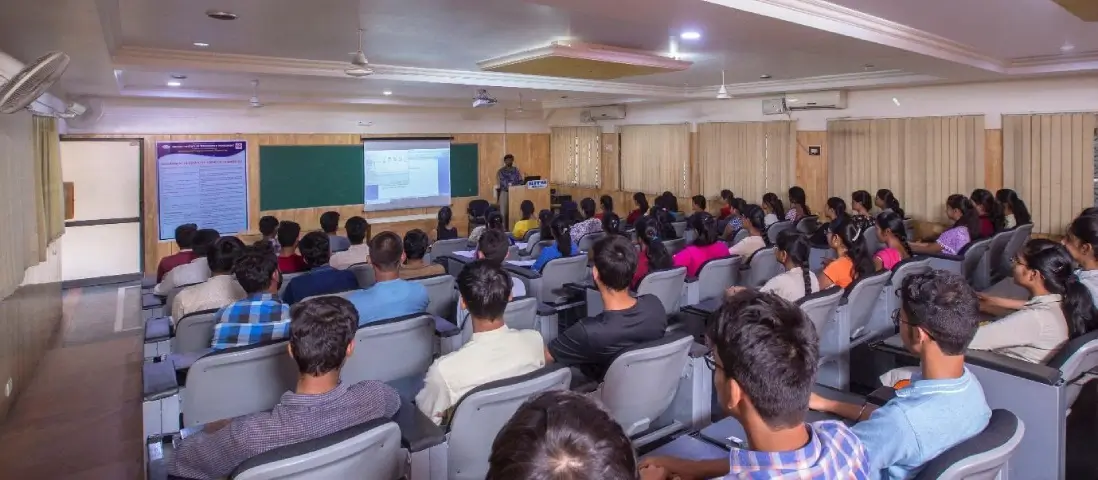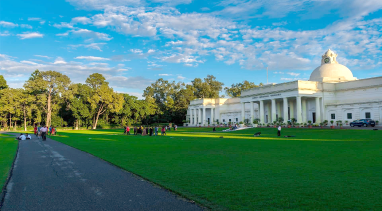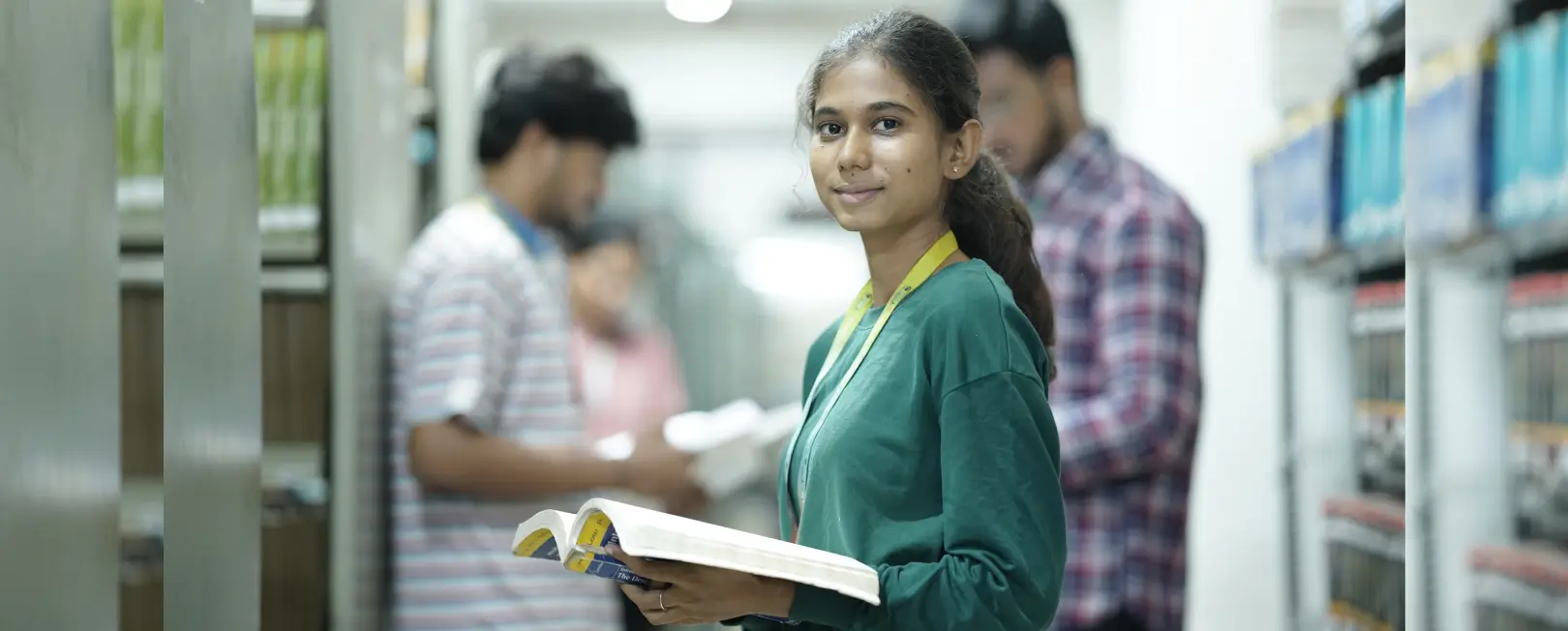The Department of Mechanical Engineering at Ballari Institute of Technology and Management features state-of-the-art infrastructure that supports innovative learning and technical excellence. Our modern laboratories, including CAD/CAM and Materials Science labs, along with an advanced manufacturing lab and a well-equipped energy lab, provide hands-on experience with industry-standard tools and technologies. Students gain exposure to the latest design software and benefit from our industrial collaboration with HARTIHA Techserve Centre for Excellence, which offers practical training. Spacious classrooms and seminar halls enhance the academic environment, while a dedicated research and development cell encourages students to engage in real-world problem-solving. Supported by experienced faculty, our department prepares students to excel in the dynamic field of mechanical engineering.
Labs
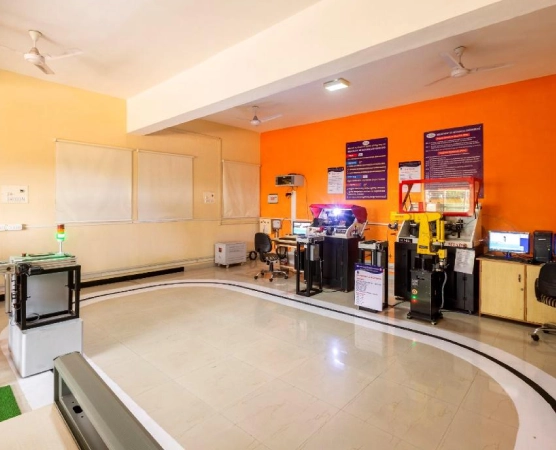
Advanced flexible Manufacturing System Laboratory
A flexible manufacturing system (FMS) is a computer-controlled production setup designed primarily to adapt at any time to changes such as product details, new products, batch sizes, sequence reordering, and so on. It is a system that is able to respond to changed conditions. The laboratory is equipped with an advanced Flexible manufacturing system setup to train the students CNC programing and learn about advanced manufacturing systems.
- Technological (set of technological workstations)
- Transportation and manipulating (is realized by the industrial robots, manipulators and
- Supervisory (is included to system if machines in system do not have own supervisory
Material testing & Metallography Laboratory
Material testing & Metallography Laboratory encompasses all the necessary Materials testing setup such as Universal Testing Machine, Impact strength testing setup, Non Destructive testing systems and heat treatment systems to ascertain both the physical and mechanical properties of raw materials and components.
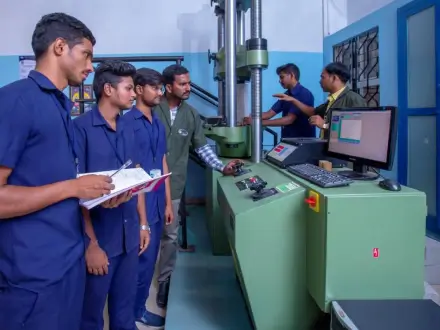
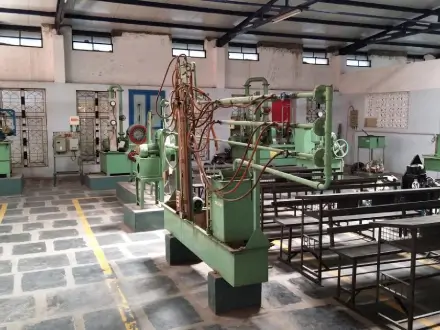
Fluid Mechanics & Machinery Laboratory
The Fluid Mechanics and Machinery lab equipped with the Pelton turbine, Francis turbine, Kaplan turbine, double acting reciprocating pump, submergible pump, mono block pump, and piston pump. The laboratory is important for Mechanical Engineering to study the behavior of fluids.
The major equipment focuses on the study and calibration of gauges, triangular notch, rectangular notch, Orifice meter Venturimeter and determination of Chezy's constant and Darcy's coefficient.
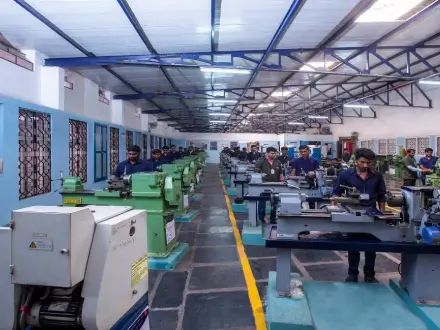
Machine Shop Laboratory
A machine shop is a facility where various machining processes are carried out to create and modify parts and components. These processes include cutting, shaping, drilling, and finishing materials such as metal, plastic, or wood.
Machine shops are equipped with a variety of tools and equipment, including lathes, milling machines, grinders A machine shop plays a crucial role in the manufacturing industry. It provides the necessary expertise, equipment, and precision machining capabilities to produce high-quality parts and components.
Heat and Mass Transfer Laboratory
Heat Transfer Lab will examine the factors that affect the rate of heat transfer through a barrier that is separating two gases. Heat and Mass transfer helps in finding the rate of heat transferred through the medium such as by conduction, convection, radiation.
By the virtue of the temperature difference between the two mediums. In heat transfer - heat energy flows in a direction of decreasing temperature gradient and ceases when the temperature gradient reduces to zero.
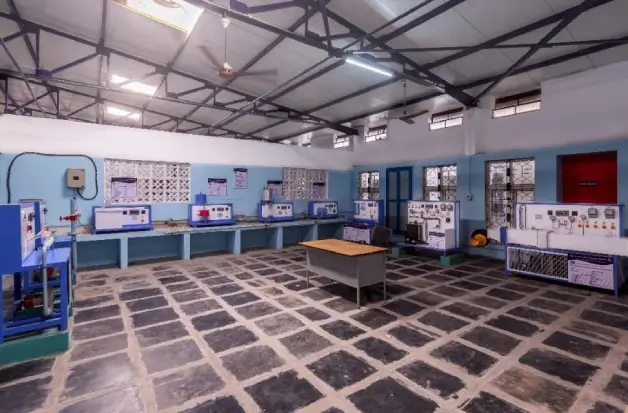
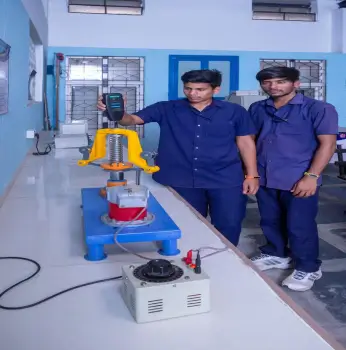
Design Laboratory
The purpose of Machine design lab is to study mechanical behavior, machine elements, and manufacturing processes. Mechanical behavior includes statics, dynamics, strength of materials, vibrations, reliability, and fatigue.
- To demonstrate the concepts discussed in Design of Machine Elements, Mechanical Vibrations &Dynamics of Machines courses.
- To visualize and understand the development of stresses in structural members and experimental determination of stresses in members utilizing the optical method of reflected photo-elasticity.
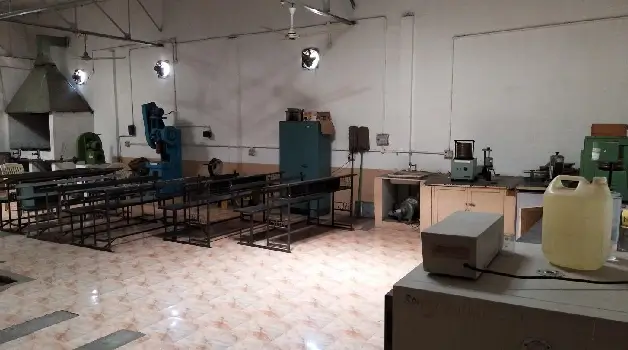
Foundry & Forging Laboratory
In Foundry, Forging and Welding lab, the students will be working on various processes involved in Casting and forging operations. The students will learn the art of producing forged models like square rod, L-Nail, square bolt, hexagonal bolt.
The most notable applications of a foundry are the production of engine blocks, crankshafts, and connecting rods used in an automobile engine.
Production of power transmission systems such as turbines, generators, and electric motors is also done through casting in a foundry.
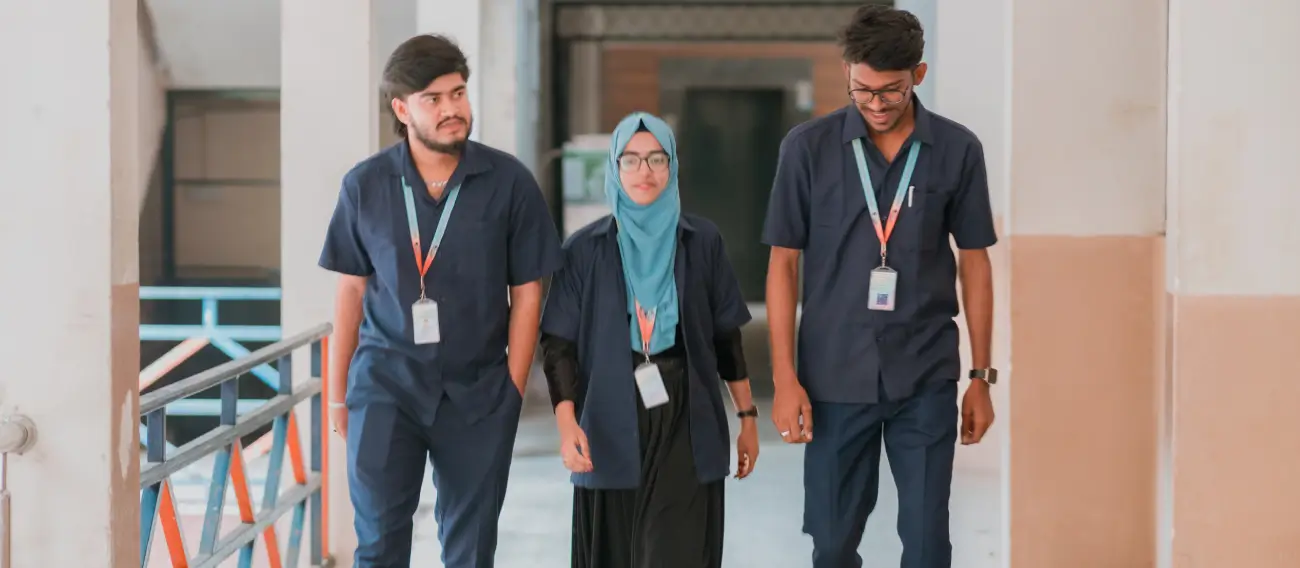
Computer Aided Modeling & Analysis Laboratory
Computer Aided Engineering (Analysis & Simulation) is the use of Computer to support Mechanical engineers in tasks such as analysis, simulation, design, manufacture, planning, diagnosis, and repair.
CAE or computer-aided engineering is the use of computer software across a wide range of industries to simulate physics-based performance to improve product designs or assist in the resolution of engineering problems. The key advantages of Computer-Aided Design software are: Enhanced precision and accuracy, Time efficiency, Cost savings, Versatility & Flexibility and Integration with Manufacturing Processes.
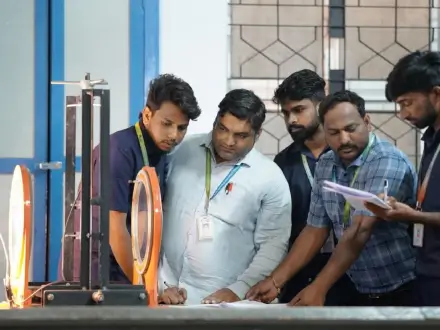
Mechanical Measurements & Metrology Laboratory
Metrology refers to the science of measurement while mechanics applies physical principles to design and analysis machinery - together these disciplines form the basis for accurate measurements in any mechanical engineering project. The metrology laboratory provides calibration services to the weighing and measuring community. The lab offers measurement advice and serves as a reference center, providing measurement assistance to industry, government agencies and educational institutions.
Metrology is the study of measurement and it is the key to achieving accuracy. The aim is to provide accurate and therefore reliable measurements for trade, health, safety and the environment. It is especially important in precision engineering where products need to meet strict tolerances.
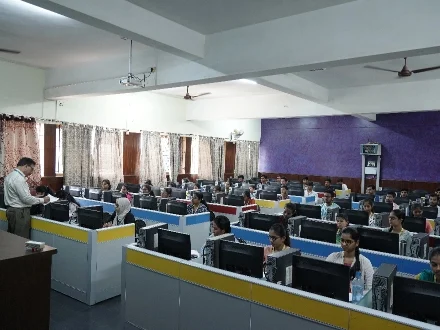
Computer Aided Engineering Drawing Laboratory
Computer-aided drawing is a technique where engineering drawings are produced with the assistance of a computer and, as with manual drawing, is only the graphical means of representing a design.
It can also develop an understanding of 2D and 3D computer aided drafting with the requirement of good engineering drawings and be able to apply them to their work.
It is essential to know the technical drawing rules before starting CAD-CAM programs.
Energy Conversion Laboratory
This lab will help students to see how energy can be converted from one form to another which will help them in acquainting with the design and operating characteristics of internal combustion engines.
To apply analytical techniques to the engineering problems and performance analysis of internal combustion engines.
To study the thermodynamics, combustion, heat transfer, friction and other factors affecting engine power efficiency and emissions. Energy conversion principles, analysis and understanding of I C Engines.
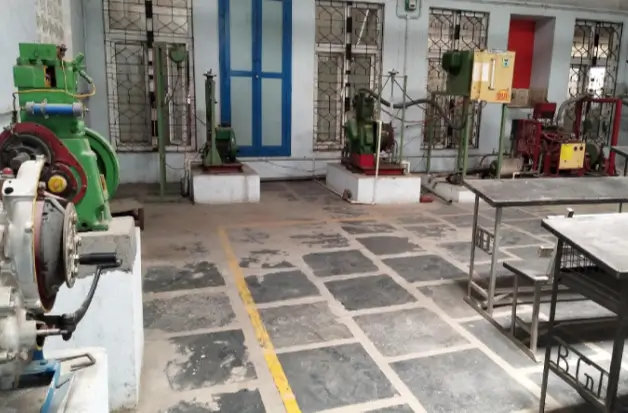
Classrooms
The department boasts nine spacious and well-lit classrooms, each equipped with CCTV cameras to enhance security.
These classrooms also include complete power backup. Modern amenities such as LCD projectors, Wi-Fi connectivity, and black/green boards create a supportive and innovative learning environment for all students.
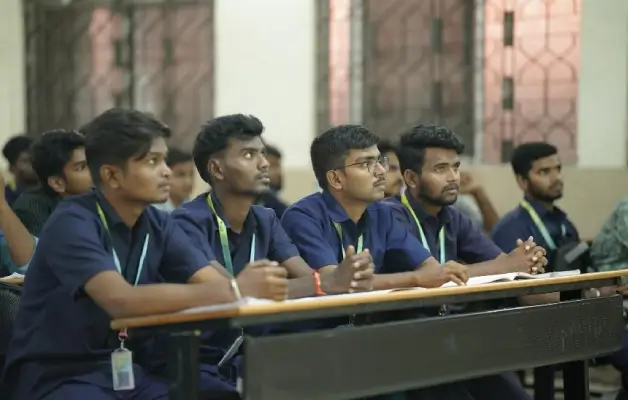
Seminar Hall
The Department has a well-equipped seminar hall with a seating capacity of 90. It features a complete audio-visual system used for Department’s meetings, seminars, and project presentations.
